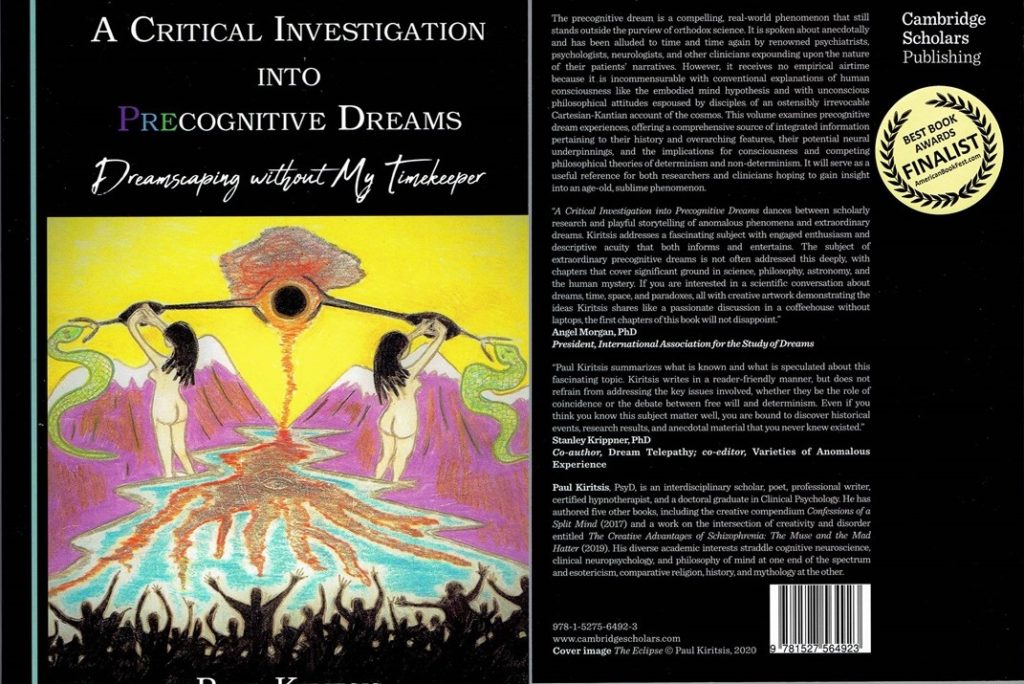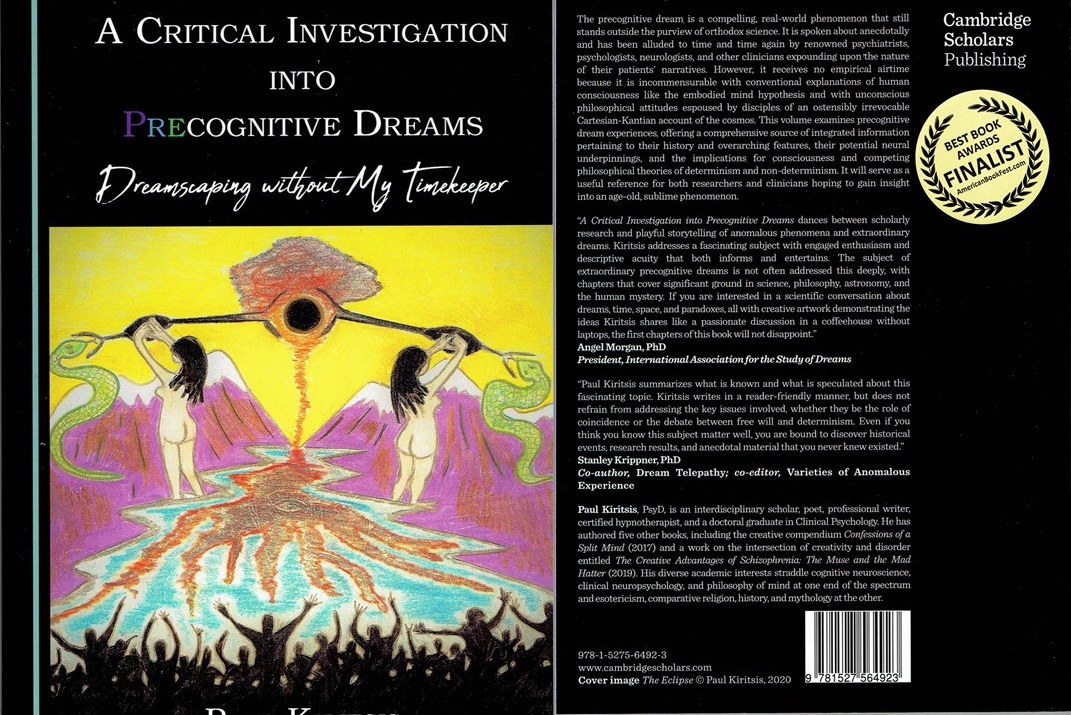
The precognitive dream is a compelling, real-world phenomenon that still stands outside the purview of orthodox science. It is spoken about anecdotally and has been alluded to time and time again by renowned psychiatrists, psychologists, neurologists, and other clinicians expounding upon the nature of their patients’ narratives. However, it receives no empirical airtime because it is incommensurable with conventional explanations of human consciousness like the embodied mind hypothesis and with unconscious philosophical attitudes espoused by disciples of an ostensibly irrevocable Cartesian-Kantian account of the cosmos. This volume examines precognitive dream experiences, offering a comprehensive source of integrated information pertaining to their history and overarching features, their potential neural underpinnings, and the implications for consciousness and competing philosophical theories of determinism and non-determinism. It will serve as a useful reference for both researchers and clinicians hoping to gain insight into an age-old, sublime phenomenon.
REVIEWS
“Paul Kiritsis’ Critical Investigation into Precognitive Dreams: Dreamscaping without My Timekeeper dances between scholarly research and playful storytelling of anomalous phenomena and extraordinary dreams. Kiritsis addresses a fascinating subject with engaged enthusiasm and descriptive acuity that both informs and entertains. The subject of extraordinary precognitive dreams is not often addressed this deeply, with chapters that cover significant ground in science, philosophy, astronomy, and the human mystery. If you are interested in a scientific conversation about dreams, time, space, and paradoxes, all with creative artwork demonstrating the ideas Kiritsis shares like a passionate discussion in a coffeehouse without laptops, the first chapters of this book will not disappoint. Finally, Kiritsis presents his own (2014) quasi-experimental investigation (n=15) into precognitive dreaming. After discussing personal vs. collective types of precognitive dreams, he gives examples of participants’ dreams alongside their waking life notes. These dreams and Kiritsis’ discussion around their potential levels of precognition (excellent, good, or average) are rich and interesting to consider. At the end of the book he sends his readers off with final thoughts about precognitive dreaming and the tension between fate and free will. In addition to critical investigation, this book is also a creative resource to add to the growing body of extraordinary dream literature.”
Angel Morgan, PhD, President, International Association for the Study of Dreams
“Dreams about future events have been a source of speculation for millennia. In his book “A Critical Investigation into Precognitive Dreams: Dreamscaping without My Timekeeper” Paul Kiritsis summarizes what is known and what is speculated about this fascinating topic. Kiritsis writes in a reader-friendly manner but does not refrain from addressing the key issues involved, whether they be the role of coincidence or the debate between free will and determinism. Even if you think you know this subject matter well, you are bound to discover historical events, research results, and anecdotal material that you never knew existed.”
Stanley Krippner, Ph.D., co-author DREAM TELEPATHY, co-editor VARIETIES OF ANOMALOUS EXPERIENCE.
“While the marketplace is saturated with plenty of books on dreaming, dream interpretation, and interpretation of symbols and artifacts that are present in dreams, Kiritsis’ book is unique in that the focus is specifically on the study between events, objects, people, conversations, etc. that people reported having dreamt about, with a later manifestation of the same phenomena in waking, day-to-day life. Kiritsis has dedicated his research to such precognitive dreaming, and the resulting book, without doubt, provides a unique, well-researched academic study of this most interesting of windows into the human psyche.”
Jonah Meyer, The US Review of Books
“A Critical Investigation into Precognitive Dreams: Dreamscaping Without My Timekeeper by Paul Kiritsis is a scholarly text examining the phenomenon of dreams hinting at or directly depicting events that later come to pass. The author is a psychotherapist, and the book approaches precognitive dreaming from a scientific rather than a mystical standpoint. The case studies are fascinating, and I appreciate the author’s agnostic approach to the subject matter. I strongly recommend this book to open-minded readers who are interested in studying metaphysical phenomena and who enjoy in-depth research.“
The Online Book Club.org
“If you’ve never heard about the phenomenon that surrounds precognitive dreams, look no further. This is an incredible exploration into the world of precognitive dreams and the extensive history behind them. Written by scholar and doctoral graduate in clinical psychology Paul Kiritsis, this book delves into the complicated and astounding nature of precognition and precognitive dreams, in particular, and how psychology goes hand in hand with this occurrence. The tellings of precognitive dreams of history, personal experiences from Kiritsis himself, and the detailed scientific experiments that further explore whether this is an extraordinary gift bestowed upon some or whether this is a physical ability, not only given to psychics and clairvoyants but the entire population if only it is tapped into is beyond just an educative read. Each page will leave you with questions which you’re eager to explore the answers to, as you continue on this journey of precognition.”
Pacific Book Review
“This is an irresistible deep dive into a subject that many are interested in yet are skeptical of. Kiritsis brings precog dreams closer to scientific fact, and treats the subject with respect, objectivity, and open-mindedness.”
Reader Views

